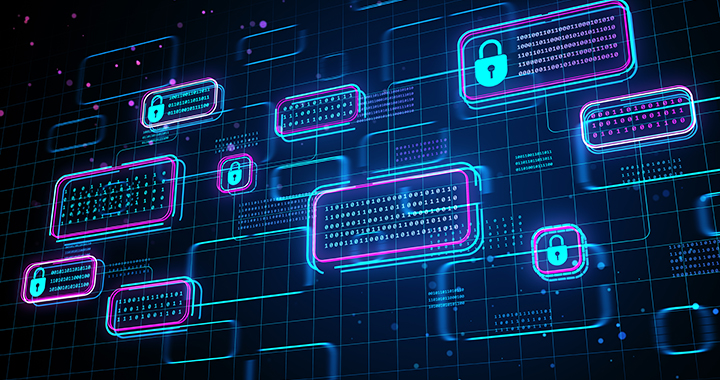In a world where Industry 4.0 is redefining production processes and infrastructure management, industrial cybersecurity is becoming a major parameter. The interconnection of systems, the rise of the Internet of Things (IoT) and intelligent automation offer opportunities in terms of performance and efficiency. But with these advances comes increased exposure to cyber threats. Businesses therefore need to arm themselves and protect their interconnected systems against these new and increasingly sophisticated threats.
Industrial cybersecurity: what’s at stake?
With Industry 4.0 gaining ground, industrial cybersecurity has become a real issue for businesses. The idea here is to protect the systems that run factories, water distribution networks and many other critical infrastructures. Industrial companies handle a considerable amount of sensitive data. From manufacturing secrets to design plans to customer information: that’s a lot of data. If it falls into the wrong hands, the consequences could be disastrous.
Cyber attacks are becoming increasingly sophisticated and frequent. Hackers are no longer content simply to steal data and then sell it, they can also take control of industrial systems and paralyse them. A successful attack can lead to production stoppages, material damage and even serious accidents. Tools such as firewalls, intrusion detection systems and constant monitoring of networks and systems must therefore be put in place to protect against these threats.
Industrial companies are subject to increasingly stringent cybersecurity regulations. The aim of these regulations is to protect critical infrastructures and guarantee everyone’s safety. Failure to comply may result in fines or other criminal penalties.
What strategies are needed to strengthen industrial cybersecurity?
Obsolete software can be a gateway for hackers to easily manage security holes. It is essential to set up an automatic update system for all software and operating systems. Regular security audits should be carried out to identify vulnerabilities. Finally, obsolete equipment that is no longer supported by the manufacturers must be replaced.
There are many different ways of dealing with cybersecurity. While CODRA is not strictly speaking a cybersecurity player, its industrial SCADA solutions such as Panorama E2 can help to make infrastructures more secure. By providing real-time visibility of systems and equipment, this software enables the rapid identification of abnormal behaviour or malfunctions that could be linked to security incidents.
Other measures need to be put in place for industrial cybersecurity:
- Use two-factor authentication for sensitive access
- Segment networks to limit the spread of attacks
- Make regular back-ups of data and store them in a safe place
Industrial cybersecurity is constantly evolving. The companies that succeed will be those that invest in research, training and collaboration. SCADA solutions enable large organisations to keep an eye on their operations and detect anomalies quickly.
Technological innovations and industrial SCADA
The future of industrial cybersecurity will inevitably involve technological innovation. With the emergence of artificial intelligence, machine learning and blockchain, threats can be detected more quickly. These new developments also mean more automated responses to incidents and improved data security.
Threats are constantly evolving. Hackers are constantly on the lookout for new vulnerabilities and new techniques to destabilise industrial systems. So we need to be on the lookout and monitor new threats, but we also need to train employees in good security practices. It’s essential to protect companies against cyber attacks.
Cybersecurity is key to building trust in Industry 4.0. To navigate this new industrial era, it is crucial that businesses become aware of the importance of cybersecurity. By learning from past mistakes and adopting best practice, they can better prepare for future threats and ensure the sustainability of their operations.







